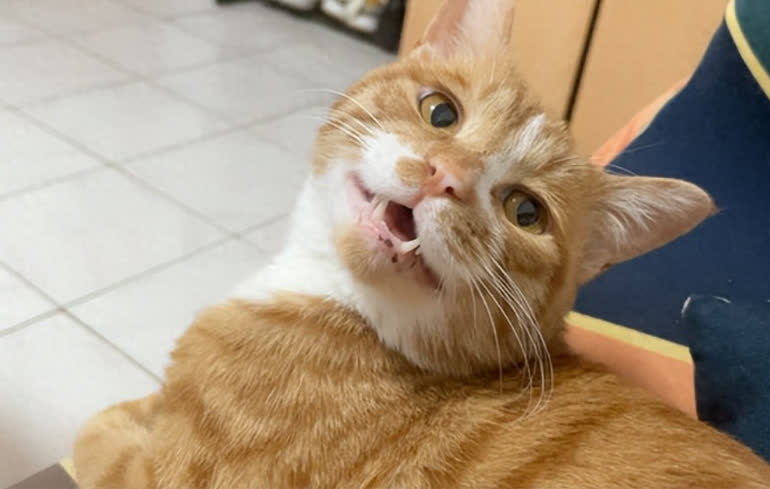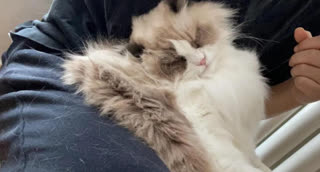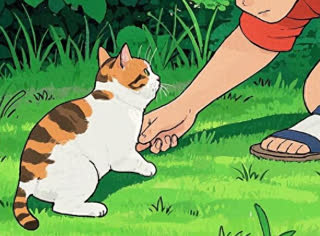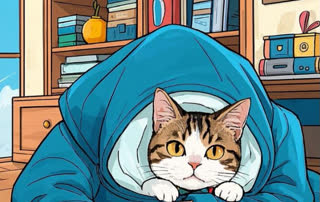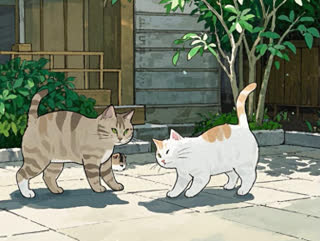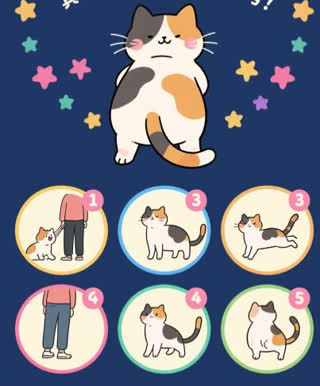As cat owners, we all strive to provide a loving and nurturing environment for our feline friends. However, there may be times when our cats engage in behaviors that test our patience, leading some of us to consider using physical punishment as a means of discipline. But what are the consequences of such actions? Do cats hold grudges after being hit, and will they seek revenge on their owners? In this article, we will explore these questions in depth, drawing on scientific research, expert insights, and real-life experiences.
Understanding Feline Behavior
Before we can determine whether cats hold grudges or seek revenge, it's essential to understand how they perceive the world and process information. Cats are intelligent and sensitive animals with their own unique ways of communicating and expressing emotions.
Memory and Learning in Cats
Research has shown that cats have a relatively good memory, especially when it comes to things that are important to their survival or well-being. They can remember people, places, and events, and they are capable of learning from their experiences. However, their memory and learning processes are different from those of humans.
Cats learn through a combination of trial and error, observation, and positive and negative reinforcement. When they experience something positive, such as receiving a treat or affection, they are more likely to repeat the behavior that led to that positive outcome. Conversely, when they experience something negative, such as pain or discomfort, they will try to avoid repeating the behavior that caused it.
Emotions in Cats
While cats may not experience emotions in the same way that humans do, they are still capable of feeling a range of emotions, including fear, anxiety, stress, happiness, and contentment. These emotions can be influenced by a variety of factors, including their environment, their interactions with humans and other animals, and their past experiences.
When a cat is hit, it experiences pain and fear, which can have a significant impact on its emotional well-being. In addition to the immediate physical pain, the cat may also feel confused, betrayed, and insecure, especially if the person hitting it is someone it trusts and relies on.
Do Cats Hold Grudges?
The question of whether cats hold grudges is a complex one, and there is no clear consensus among experts. Some believe that cats are capable of holding grudges and that they may remember and resent being hit for a long time. Others argue that cats do not have the cognitive ability to hold grudges in the same way that humans do and that their behavior after being hit is more likely a result of fear and self-preservation.
Evidence Suggesting Cats Hold Grudges
There are many anecdotal reports from cat owners suggesting that their cats hold grudges after being hit. For example, some cats may become more distant, avoid their owners, or display signs of aggression when they are around the person who hit them. These behaviors can last for days, weeks, or even months after the incident.
In addition to anecdotal evidence, there is some scientific research that suggests cats may have the ability to hold grudges. A study published in the journal "Animal Cognition" found that cats are capable of recognizing and remembering human faces, and they may be able to associate certain faces with positive or negative experiences. This suggests that cats may be able to remember who hit them and may hold a negative view of that person.
Evidence Suggesting Cats Do Not Hold Grudges
On the other hand, there is also evidence to suggest that cats do not hold grudges in the same way that humans do. Cats have a relatively short attention span, and they are more likely to focus on the present moment than on past events. In addition, cats are highly adaptable animals, and they are able to quickly adjust to changes in their environment and circumstances.
A study published in the journal "Applied Animal Behaviour Science" found that cats are more likely to forgive and forget negative experiences if they are provided with positive reinforcement and reassurance. The study also found that cats are more likely to form strong bonds with their owners if they are treated with kindness and respect.
Will Cats Take Revenge?
The idea of a cat seeking revenge on its owner may seem like something out of a cartoon, but it's a question that many cat owners have wondered about. While cats may not have the same concept of revenge as humans, they may engage in behaviors that could be interpreted as retaliation after being hit.
Behaviors That May Be Mistaken for Revenge
Some of the behaviors that cats may exhibit after being hit that could be mistaken for revenge include:
Aggression: Cats may become more aggressive towards their owners or other animals in the household. This can include hissing, growling, scratching, or biting.
Destructive behavior: Cats may engage in destructive behavior, such as scratching furniture, knocking over objects, or urinating outside the litter box.
Explanations for These Behaviors
While these behaviors may seem like revenge, they are more likely a result of the cat's fear, anxiety, and stress. When a cat is hit, it experiences a traumatic event that can cause it to feel insecure and unsafe. As a result, the cat may engage in these behaviors as a way of coping with its emotions and protecting itself.
For example, aggression may be a sign that the cat is feeling threatened and is trying to defend itself. Destructive behavior may be a way for the cat to release its pent-up energy and frustration. Avoidance may be a sign that the cat is trying to avoid further pain or discomfort.
The Impact of Hitting on the Human-Cat Bond
Regardless of whether cats hold grudges or seek revenge, hitting them can have a significant impact on the human-cat bond. The bond between a cat and its owner is built on trust, respect, and affection, and physical punishment can damage this bond and cause long-term emotional harm to the cat.
Loss of Trust
When a cat is hit by its owner, it may lose trust in that person. Cats rely on their owners for food, shelter, and protection, and if they feel that their owner is a source of danger, they may become fearful and insecure. This can lead to a breakdown in the relationship between the cat and its owner, making it more difficult to bond with the cat and train it in the future.
Behavioral Problems
Hitting a cat can also lead to a variety of behavioral problems, including aggression, anxiety, and litter box issues. These problems can be difficult to address and may require the help of a professional animal behaviorist. In addition, cats that are regularly hit may be more likely to develop health problems, such as stress-related illnesses and digestive issues.
Emotional Distress
Finally, hitting a cat can cause emotional distress to the cat. Cats are sensitive animals, and they can feel pain, fear, and anxiety just like humans. When a cat is hit, it may experience a range of negative emotions, which can have a lasting impact on its mental health and well-being.
Alternatives to Hitting
If you're struggling with your cat's behavior, there are many alternatives to hitting that are more effective and humane. These include:
Positive reinforcement: Rewarding your cat for good behavior with treats, praise, and affection is a much more effective way to train your cat than punishment. When your cat engages in a behavior that you want to encourage, such as using the litter box or scratching a scratching post, immediately give it a treat and praise it.
Redirection: If your cat is engaging in a behavior that you don't want it to do, such as scratching furniture, redirect its attention to a more appropriate behavior, such as scratching a scratching post. You can do this by offering your cat a toy or a treat when it starts to scratch the furniture and then guiding it to the scratching post.
Training: Training your cat using positive reinforcement techniques can help it learn new behaviors and 改掉不良习惯. There are many resources available online and in pet stores that can help you train your cat, including books, videos, and training classes.
Environmental enrichment: Providing your cat with plenty of opportunities for exercise, play, and mental stimulation can help reduce boredom and frustration, which can lead to behavioral problems. Make sure your cat has access to toys, scratching posts, climbing structures, and other forms of environmental enrichment.
In conclusion, while the question of whether cats hold grudges or seek revenge after being hit is a complex one, there is evidence to suggest that hitting a cat can have a significant impact on its emotional well-being and the human-cat bond. Instead of using physical punishment, it's important to use positive reinforcement, redirection, training, and environmental enrichment to address your cat's behavior problems. By treating your cat with kindness, respect, and understanding, you can build a strong and lasting bond with your feline friend and ensure that it lives a happy and healthy life.
